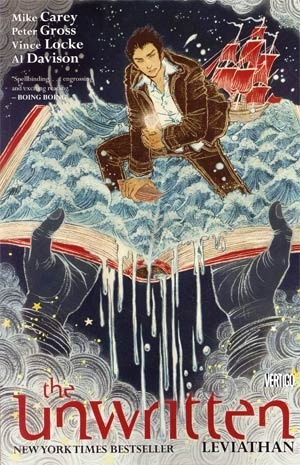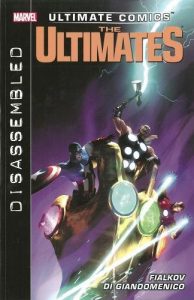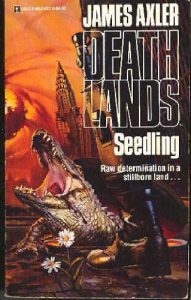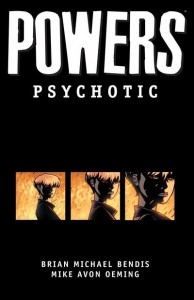 The irony of staring at a blank screen, trying to figure out what to say about the current volume of The Unwritten, it has not escaped me. Here’s where I’m stuck. The story, in which Tom Taylor is exercising his new-found powers over the world and the literary realms[1], was definitely lively enough to keep me interested throughout. The problem is, having reached the end and nodding along wisely as he explicates his own conclusions on the topic and re-dedicates himself to the fight those powers are meant to help him with…
The irony of staring at a blank screen, trying to figure out what to say about the current volume of The Unwritten, it has not escaped me. Here’s where I’m stuck. The story, in which Tom Taylor is exercising his new-found powers over the world and the literary realms[1], was definitely lively enough to keep me interested throughout. The problem is, having reached the end and nodding along wisely as he explicates his own conclusions on the topic and re-dedicates himself to the fight those powers are meant to help him with…
Well, the problem is, I don’t really yet have any idea what either he or his opposition want to accomplish. The stakes certainly seem world-spanningly high, and it may be my fault for having spaced these books out too broadly, but I have no idea what the prize is supposed to be, much less the win condition. It seems like I should, and it’s hard to look back and care very much while I don’t.
I’m kind of asking, in fact. Does anyone else read this series and know what the fight is actually for? I don’t want spoilers if I shouldn’t know yet (as of Leviathan), but a confirmation that someone else does know or an appropriate reminder if I should know myself, these would definitely not go amiss. It’s all the more frustrating because I appreciate what Carey is doing here, and I think he might have something profound on his hands, but right now it, whatever it is, is as adrift as I am.
[1] Perhaps someday we’ll find out if he has powers over the world as well because he himself is a character in a literary realm. That might be far too meta and self-aware of the story, but I haven’t made up my mind yet. Probably I won’t until it happens, and if it never happens, I’ll be stuck always wondering if that’s what I was supposed to believe.
 I’m very nearly caught up on Ultimate Marvel comics again, after my year-long hiatus to read about a shepherd with a sword. Which is really good timing, because
I’m very nearly caught up on Ultimate Marvel comics again, after my year-long hiatus to read about a shepherd with a sword. Which is really good timing, because  Assuming you haven’t been here long (and are unwilling to click through the Deathlands tag): post-apocalyptic 22nd Century gun porn with teleporters and whiffs of Seven Samurai, in episodic format, series approximately 100 books in length. Okay? Okay.
Assuming you haven’t been here long (and are unwilling to click through the Deathlands tag): post-apocalyptic 22nd Century gun porn with teleporters and whiffs of Seven Samurai, in episodic format, series approximately 100 books in length. Okay? Okay.





